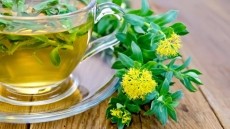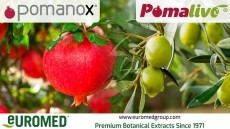Passion fruit peel may ease breathing for asthmatics: study
wheezing amongst asthmatics, suggest findings from a randomised,
placebo-controlled, double-blind trial.
Fewer than 20 per cent of the subjects receiving the passion fruit peel (PFP) extract still had wheeze as a clinical symptom of asthma, compared to about 80 per cent of subjects in the placebo group, according to findings published in the journal Nutrition Research .
Moreover, coughing fell by 76 per cent in the extract group, compared to 47 per cent in the placebo group, said the researchers, led by Ronald Ross Watson from Southwest Scientific Editing and Consulting, and Enid Zuckerman Arizona College of Public Health in Tucson, Arizona.
"The results of the present study demonstrated the clinical benefit of daily oral administration of PFP in adults with persistent asthma, with safe use," stated the researchers.
"As many patients are not able to tolerate the currently available anti-asthmatic medications, a natural dietary supplement with low or no toxicity would be an attractive candidate for further development."
According to the European Federation of Allergy and Airway Diseases Patients Association (EFA), over 30m Europeans suffer from asthma, costing Europe €17.7bn every year.
The cost due to lost productivity is estimated to be around €9.8bn.
The condition is on the rise in the Western world and the most common long-term condition in the UK.
Promising results Watson and co-workers recruited 42 asthmatics with an average age of 36.1 and randomly assigned them to receive a daily passion fruit peel extract (150 mg per day) or placebo for four weeks.
At the end of the study, the researchers report that the majority of clinical asthma symptoms were "moderately" affected.
Specifically, they note "the prevalence of wheeze, cough, as well as shortness of breath was reduced significantly in group treated with PFP extract whereas the placebo caused no significant improvement."
Coughing was reduced by 76.2 per cent, wheezing by 80.9 per cent, while the number of people experiencing shortness of breath was reduced from 90 per cent at the start of the study to only 10 per cent at the end, following four weeks of the passion fruit peel extract supplements.
On the other hand, no significant improvements were recorded with respect to lung function, with no changes measured in the forced expiratory volume at 1 second (FEV1) in either group.
From a safety perspective, Watson and co-workers report none of the study participants reported any adverse effects.
"The results of this clinical study indicate that the PFP extract may be a valuable nutriceutical [sic] supplement in the management of chronic asthma," wrote the researchers.
Mechanism of action Several potential mechanisms of action were proposed by the researchers.
Firstly, they suggested a role for the antioxidants in the peel extract, noting that many studies have reported a link between "oxidative stress, bronchial inflammation, the development of asthmatic symptoms, and reduction of cellular functions".
"Therefore, a role for antioxidants in reducing pathology is likely, particularly during exacerbation of asthma," they stated.
A second potential mechanism could involve the role of the flavonoids in reducing allergy and inflammation.
"[Flavonoids] can inhibit histamine release, arachidonic acid metabolism, and cytokine production," they added.
The article notes that a patent is pending for the passion fruit peel extract.
Study limitations Despite the positive findings, the Watson and co-workers note that the results were based on self-reporting of asthma symptoms, which may be subject to recall errors, while they also note that only 42 subjects took part, which may prevent the results being generalised.
The short period of the study was also noted as a limitation.
The researchers were affiliated with Southwest Scientific Editing and Consulting in Tucson, Arizona, Mel and Enid Zuckerman Arizona College of Public Health in Tucson, Arizona, Mashhad University of Medical Sciences in Iran, Integrated Bioactives Technologies (Industrial Research Ltd) in New Zealand Source: Nutrition Research (Elsevier) March 2008, Volume 28, Issue 3, Pages 166-171 "Oral administration of the purple passion fruit peel extract reduces wheeze and cough and improves shortness of breath in adults with asthma" Authors: Ronald Ross Watson, S. Zibadi, H. Rafatpanah, F. Jabbari, R. Ghasemi, J. Ghafari, H. Afrasiabi, L.Y. Foo, R. Faridhosseini











